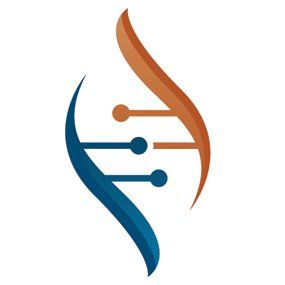预约演示
更新于:2025-05-07
Texas Children's Cancer & Hematology Centers
更新于:2025-05-07
概览
标签
神经系统疾病
肿瘤
其他疾病
小分子化药
关联
1
项与 Texas Children's Cancer & Hematology Centers 相关的药物靶点 |
作用机制 OLIG2 inhibitors |
在研适应症 |
非在研适应症- |
最高研发阶段临床前 |
首次获批国家/地区- |
首次获批日期- |
8
项与 Texas Children's Cancer & Hematology Centers 相关的临床试验NCT05010564
(H-49235) Trivalent Autologous T-Lymphocytes Co-Expressing Three Chimeric Antigen Receptors Targeting CD19, CD20 and CD22 in Acute B-lineage Leukemia (TRICAR-ALL)
This is a gene transfer study for patients with a type of blood cancer called Acute Lymphoblastic Leukemia (ALL) that has come back or has not gone away after treatment.
The body has different ways of fighting infection and disease. No single way seems perfect for fighting cancers. This research study combines two different ways of fighting cancer: antibodies and T cells. Antibodies are types of proteins that protect the body from infectious diseases and possibly cancer. T cells, also called T lymphocytes, are special infection-fighting blood cells that can kill other cells, including cells infected with viruses and tumor cells. Both antibodies and T cells have been used to treat patients with cancers. They have shown promise but have not been strong enough to cure most patients. For example, T lymphocytes can kill cancer cells but there normally are not enough of them to kill all the cancer cells. Some researchers have taken T cells from a person's blood, grown more of them in the laboratory and then given them back to the person.
The antibody used in this study targets CD19, CD20 and CD22. This antibody sticks to ALL cells because of a substance on the outside of these cells called CD19, CD20 and/or CD22. For this study, the antibody to CD19, CD20 and CD22 has been changed so that instead of floating free in the blood, it is now joined to the T cells. When T-cells contain an antibody that is joined to them, they are called chimeric antigen receptor- T cells or CAR-T cells.
In the laboratory, we have also found that T cells work better if we also add proteins that stimulate them. One such protein is called 4-1BB. Adding the 4-1BB molecule makes the cells grow better and last longer in the body, giving them a better chance of killing the leukemia cells. In this study we are going to attach the CD19/CD20/CD22 chimeric receptor that has 4-1BB added to the patient's T cells. We will then test how long the cells last.
These T cells, called "TRICAR-ALL" T cells are investigational products not approved by the Food and Drug Administration (FDA) outside the context of a clinical trial.
The body has different ways of fighting infection and disease. No single way seems perfect for fighting cancers. This research study combines two different ways of fighting cancer: antibodies and T cells. Antibodies are types of proteins that protect the body from infectious diseases and possibly cancer. T cells, also called T lymphocytes, are special infection-fighting blood cells that can kill other cells, including cells infected with viruses and tumor cells. Both antibodies and T cells have been used to treat patients with cancers. They have shown promise but have not been strong enough to cure most patients. For example, T lymphocytes can kill cancer cells but there normally are not enough of them to kill all the cancer cells. Some researchers have taken T cells from a person's blood, grown more of them in the laboratory and then given them back to the person.
The antibody used in this study targets CD19, CD20 and CD22. This antibody sticks to ALL cells because of a substance on the outside of these cells called CD19, CD20 and/or CD22. For this study, the antibody to CD19, CD20 and CD22 has been changed so that instead of floating free in the blood, it is now joined to the T cells. When T-cells contain an antibody that is joined to them, they are called chimeric antigen receptor- T cells or CAR-T cells.
In the laboratory, we have also found that T cells work better if we also add proteins that stimulate them. One such protein is called 4-1BB. Adding the 4-1BB molecule makes the cells grow better and last longer in the body, giving them a better chance of killing the leukemia cells. In this study we are going to attach the CD19/CD20/CD22 chimeric receptor that has 4-1BB added to the patient's T cells. We will then test how long the cells last.
These T cells, called "TRICAR-ALL" T cells are investigational products not approved by the Food and Drug Administration (FDA) outside the context of a clinical trial.
开始日期2023-07-18 |
申办/合作机构 |
NCT04525014
A Phase 1 Trial of RRx-001 in Combination With Irinotecan and Temozolomide for Pediatric Patients With Recurrent or Progressive Malignant Solid and Central Nervous System Tumors
The PIRATE study tests the experimental drug RRx-001 in combination with 2 chemotherapy drugs that are commonly used in patients with cancer. RRx-001 has been used alone and with other anti-cancer medicines in adults. However, the investigators do not know what effects it will have in children and young adults.
开始日期2023-01-26 |
申办/合作机构  EpicentRx, Inc. EpicentRx, Inc. [+1] |
NCT04903080
Phase 1 Trial of Autologous HER2-specific CAR T Cells in Pediatric Patients With Refractory or Recurrent Ependymoma
This is a Phase I study to evaluate the safety profile of a type of immune therapy called HER2 CAR T cells (short for HER2 chimeric antigen receptor T cells). In addition to looking for side effects, we will study how well this treatment works against a brain tumor called ependymoma that has come back after treatment (recurrent) or has not responded well to treatment (progressive) in children. The HER2 CAR T cells used in this trial are made from the patient's own blood. A new gene, called the HER2 CAR, will be inserted into patient's T cells to allow them recognize a protein on the tumor called HER2. These HER2-specific CAR T cells may be able to target and kill ependymoma tumors that express HER2. This research is also studying how doable it is to provide this type of CAR T cell treatment to children being treated at different hospitals.
开始日期2022-07-27 |
申办/合作机构 |
100 项与 Texas Children's Cancer & Hematology Centers 相关的临床结果
登录后查看更多信息
0 项与 Texas Children's Cancer & Hematology Centers 相关的专利(医药)
登录后查看更多信息
317
项与 Texas Children's Cancer & Hematology Centers 相关的文献(医药)2025-04-15·Journal of Clinical Investigation
ATM-dependent DNA damage response constrains cell growth and drives clonal hematopoiesis in telomere biology disorders
Article
作者: Brundige, Karyn J ; Corines, James ; Bertuch, Alison A ; Walne, Amanda J ; Gebhard, Talia ; Banaszak, Lauren G ; Gill, Saar ; Lieberman, David B ; Lin, Ping ; Peterson, Madilynn ; Chen, Qijun ; Sande, Christopher M ; Agarwal, Suneet ; Oetjen, Karolyn A ; Abraham, Diana M ; Babushok, Daria V ; Kumar, Sushant ; Yang, Guang ; Johnson, F Brad ; Zheng, Jiayin ; Stanley, Natasha L ; Dutta, Ritika ; Dokal, Inderjeet ; Guo, Kathy ; Gelman, Andrew E ; Zheng, Shannon ; Chen, Stone ; Rosenheck, Justin P ; Smith-Simmer, Kelcy ; Bowman, Robert L ; Lindsley, R Coleman ; Shoger, Kyle N ; Link, Daniel C ; Bowman, Michael ; Morrissette, Jennifer Jd ; Tague, Laneshia K ; Reilly, Christopher R ; Zhou, Mary ; Olson, Timothy S ; Hausler, Ryan ; Taylor, Deanne M ; Nicholas, Peter ; Churpek, Jane E ; Mitchell, Dana V ; Shestova, Olga ; Cheng, Jessie Minxuan ; Deolikar, Rujul J ; Munkhbileg, Bolormaa ; Lapite, Ajibike ; Freeman, Colby ; Reinig, Erica F
2025-04-01·Journal of Immunological Methods
Corrigendum to “Comprehensive normalization and binary classification methods for enhanced sensitivity and reproducibility in Luminex assay quantitation” [Journal of Immunological Methods 538 (2025) 113826]
作者: Konduri, V ; Burns, B A ; Tubman, V N ; Forconi, C S ; Moormann, A M ; Chandra, M ; Shaw, C A ; Decker, W K
2025-03-01·Cancer Nursing
High Symptom Burden Predicts Poorer Quality of Life Among Children and Adolescents Receiving Hematopoietic Stem Cell Transplantation or Chimeric Antigen Receptor T-Cell Therapy
Article
作者: Ward, Jessica ; Montgomery, Kathleen E ; Hellsten, Melody ; Powers, Kimberly ; Murray, Paula ; Raybin, Jennifer L
1
项与 Texas Children's Cancer & Hematology Centers 相关的新闻(医药)2024-04-24
Researchers have published results of a phase I clinical trial of a novel immunotherapy for high-risk sarcomas.
Researchers at Texas Children's Cancer Center and the Center for Cell and Gene Therapy at Baylor College of Medicine, Texas Children's Hospital and Houston Methodist published results of a phase I clinical trial of a novel immunotherapy for high-risk sarcomas in the journal Nature Cancer.
The therapy uses chimeric antigen receptor (CAR) T cells engineered to target the HER2 protein, which is overexpressed on the surface of sarcoma cells. The HEROS 2.0 trial showed that this therapeutic approach is safe and is associated with clinical benefit. "CAR T cell therapy has been a highly successful strategy for recurrent or high-risk leukemias or lymphomas, but challenges remain in using this therapy for solid tumors," said first and corresponding author Dr. Meenakshi Hegde, associate professor of pediatrics -- hematology and oncology at Baylor and pediatric oncologist at Texas Children's Cancer Center. "The results of this trial show that we are moving the dial in harnessing the power of CAR T cells as an effective anticancer therapy for sarcomas."
In a previous clinical trial, the HEROS study, researchers found that CAR T cells directed at HER2+ tumor cells had a favorable safety profile, but clinical benefit was limited by poor CAR T expansion and persistence. In HEROS 2.0, researchers added successive HER2-CAR T cell infusions following lymphodepletion, which uses chemotherapy to deplete the patient's own T cells, to make room for the infused therapeutic HER2-CAR T cells to expand.
"We also increased the number of allowable HER2-CAR T infusions to sustain the exposure time of CAR T cells, with the goal of increasing the antitumor effect," Hegde said. "This study showed that CAR T expansion and persistence was improved with lymphodepletion and repeat cycles of treatment."
Thirteen patients were enrolled in the HEROS 2.0 trial at Texas Children's Cancer Center and Houston Methodist Hospital, and seven patients received multiple CAR T infusions. HER2-CAR T expansion occurred following 19 of 21 total infusions, and clinical benefit was seen in 50% of treated patients. An exceptional response in a patient with metastatic rhabdomyosarcoma was detailed in a publication in Nature Communications in 2020. The patient remains healthy and cancer free, more than five years after treatment. Nine patients in the first two cohorts developed low-grade cytokine release syndrome (CRS), an acute inflammatory response seen as a side effect of CAR T treatment. Two patients in the third cohort experienced dose-limiting CRS, which necessitated ending the dose-escalation.
"We are now studying the tumors and the way we engineer the CAR T cells to better facilitate the safe delivery of higher doses, thereby enhancing antitumor activity by increasing the magnitude of CAR T cell expansion and persistence," Hegde said. "HEROS 2.0, the second edition of the HEROS trials, exemplifies how the crosstalk between the bench and the bedside results in refinement of first-in-child studies and more durable clinical benefit," said senior author Dr. Nabil Ahmed, professor of pediatrics -- hematology and oncology at Baylor and pediatric oncologist at Texas Children's Cancer Center.
The researchers currently are recruiting for the HEROS 3.0 trial, which will evaluate the safety of giving HER2-CAR T cells in combination with chemotherapy and an immune checkpoint inhibitor drug.
免疫疗法临床1期细胞疗法临床结果
100 项与 Texas Children's Cancer & Hematology Centers 相关的药物交易
登录后查看更多信息
100 项与 Texas Children's Cancer & Hematology Centers 相关的转化医学
登录后查看更多信息
组织架构
使用我们的机构树数据加速您的研究。
登录
或

管线布局
2025年09月10日管线快照
管线布局中药物为当前组织机构及其子机构作为药物机构进行统计,早期临床1期并入临床1期,临床1/2期并入临床2期,临床2/3期并入临床3期
临床前
1
登录后查看更多信息
药物交易
使用我们的药物交易数据加速您的研究。
登录
或

转化医学
使用我们的转化医学数据加速您的研究。
登录
或

营收
使用 Synapse 探索超过 36 万个组织的财务状况。
登录
或

科研基金(NIH)
访问超过 200 万项资助和基金信息,以提升您的研究之旅。
登录
或

投资
深入了解从初创企业到成熟企业的最新公司投资动态。
登录
或

融资
发掘融资趋势以验证和推进您的投资机会。
登录
或

Eureka LS:
全新生物医药AI Agent 覆盖科研全链路,让突破性发现快人一步
立即开始免费试用!
智慧芽新药情报库是智慧芽专为生命科学人士构建的基于AI的创新药情报平台,助您全方位提升您的研发与决策效率。
立即开始数据试用!
智慧芽新药库数据也通过智慧芽数据服务平台,以API或者数据包形式对外开放,助您更加充分利用智慧芽新药情报信息。
生物序列数据库
生物药研发创新
免费使用
化学结构数据库
小分子化药研发创新
免费使用

